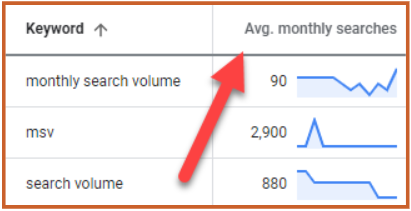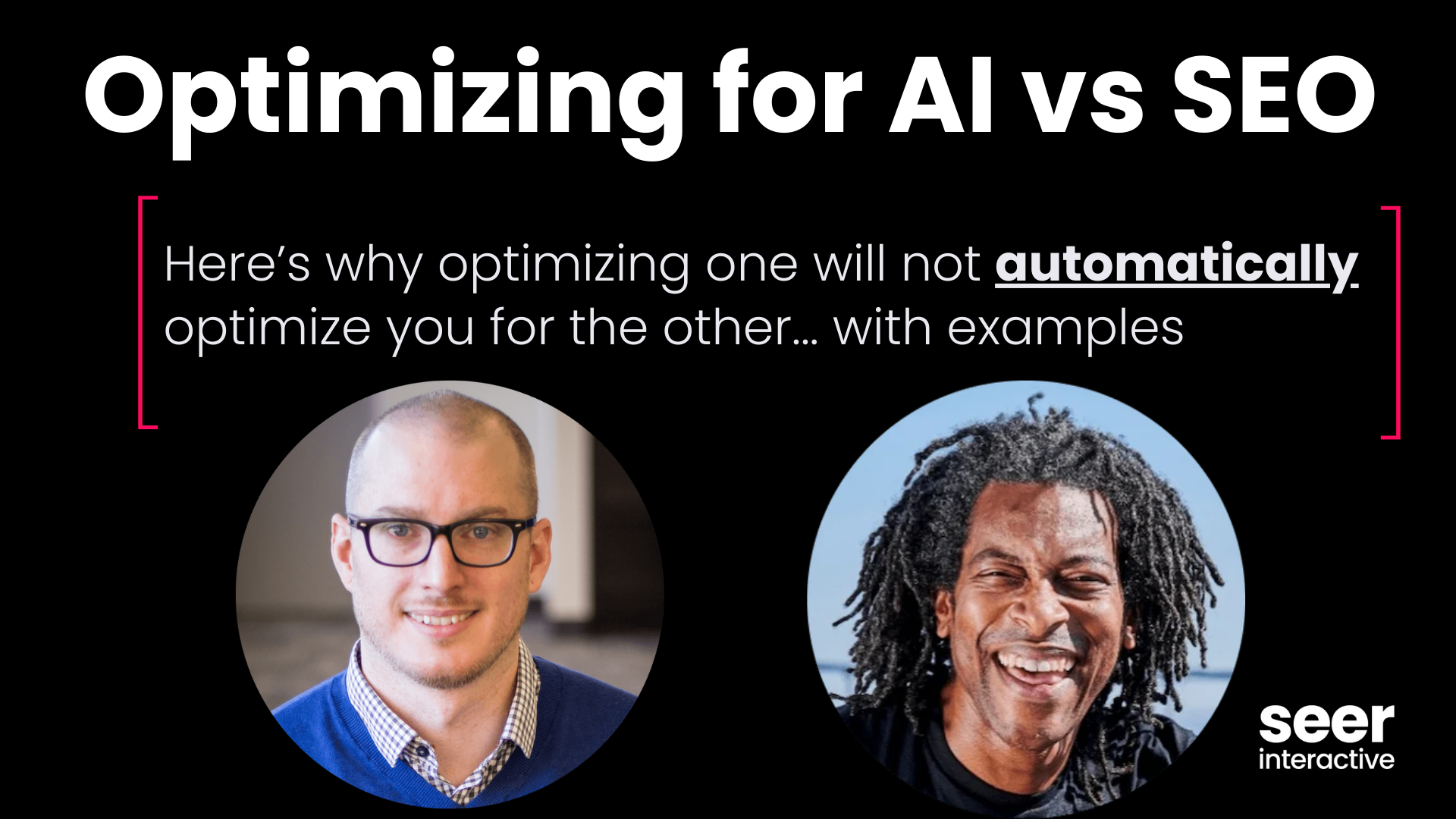Only targeting Search Volume metrics puts a limitation on business growth and the ability to achieve conversion goals.
Although Search Volume, also known as Monthly Search Volume (MSV), is a good indicator of a topic’s popularity, it does not mean that this will translate into website visits for your brand. Depending on your specific business goals it may make sense to create content that targets keywords with a high MSV as part of your content strategy, but generally if your goal is to drive more qualified traffic to your website then headterms aren’t the answer.
Before we get into the thick of it, let’s define the "MSV" metric:
Keyword Search Volume (MSV) is an estimate of how many times, on average, a query is being searched for in a given month.
Check out this example of MSV data from Google Ads Keyword Planner:

What’s so bad about Search Volume?
Consider factors such as where a user is in their search journey -- are they looking for educational information? Are they ready to convert? Maybe they know what they want but they’re still exploring their options. Understanding the intent of your audience is a critical step in conducting impactful keyword research that ultimately works in favor of your bottom line.
Ranking for high MSV terms sounds great in theory, but in practice it’s unlikely for a site to rank on page 1 for these popular keywords and even if they do, the likelihood that a user is intending to convert based on such a broad query is slim.
In fact, one of the most important things to remember about SEO is that just because keywords are high in monthly search volume doesn’t mean they will result in more conversions. It is often the case that keywords which are considered “long tail” are more likely to drive goal completions.
Let’s break Search Volume down further:
- Large head terms with hundreds of searches per month are valuable – but for educational goals, not so much for purchase goals. So if your website is only ranking for educational queries, it will be difficult to drive revenue without a robust lead nurturing strategy.
- The same goes for just targeting long-tail keywords – if your brand doesn’t have any educational content – a user will be less likely to know your brand, trust your brand, or make a purchase.
- Even if there are no Ecommerce purchases available directly on your site, these general rules still apply to your conversion metrics.
Why is MSV not a great metric?
Because users today are searching using specific, long-tail keywords when they are looking to make a purchase.
In line with Google’s evolution away from being a keyword-focused search engine and toward a semantic and topic-focused engine, the traditional ways of thinking about how to prioritize content are no longer as useful or relevant.
The problem with basing a content strategy predominantly on Search Volume is that most sources of MSV data provide only the keywords that get trackable search volume -- which out of the billions of searches that happen every day, is fewer than 10% of everything people are searching for.
Google is a Business Too ...
If you think about it from a business perspective, it’s in Google’s best interest to serve users with content that meets their specific needs each time they search so that they return to use Google as their main search engine.
Google doesn’t care how many people are searching for “renter-friendly wallpaper” every month because the algorithm is built in such a way that creating the best user experience for each human using their services is the main goal.
This is why Google is pouring resources into semantic and natural-language processing research -- users are searching with long, specific, semantic keywords and Google knows that the best way to keep people loyal to their search engine is to understand how their audience searches and reward the content that provides them a good experience.
So, what? Should I just quit using MSV?
The big takeaway here is that using long-tail keywords over those with a high MSV, to find the specific words that your target audience is looking for, is a better way to consider keywords and create content that drives additional qualified traffic, leading to a higher ROI -- whether that be in-store or online.
While it may be a strategic choice depending on the business goal to target high MSV terms, it’s important to understand that the industry is evolving and moving further and further away from MSV.
💡 Learn how we tackle keyword research at Seer Interactive.



